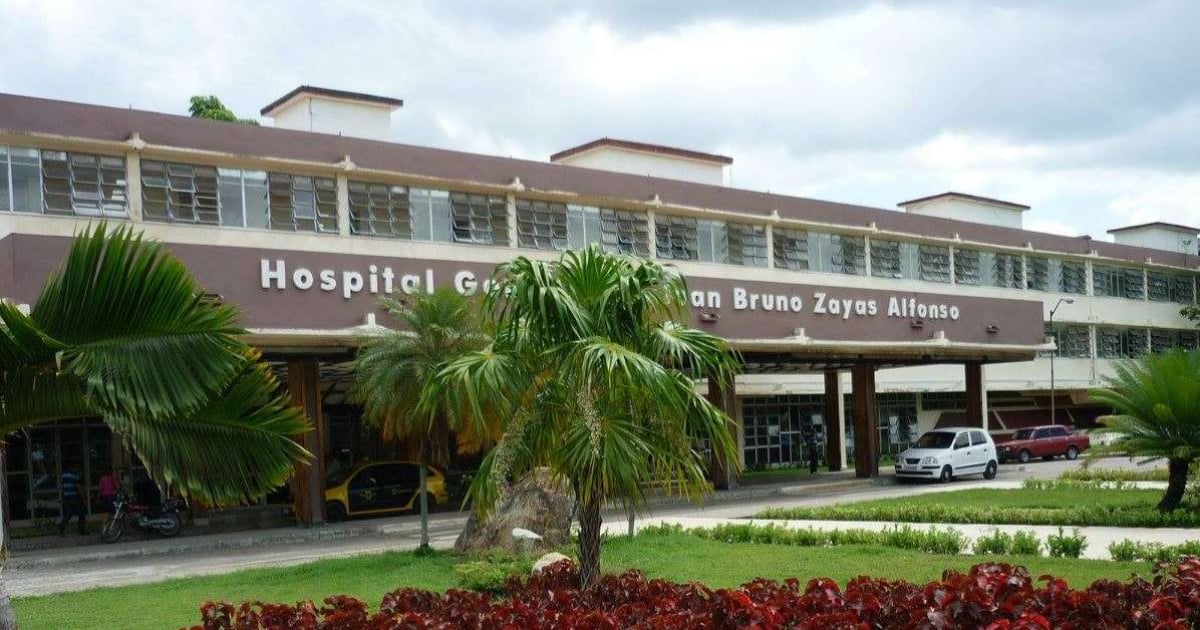An incident at the Juan Bruno Zayas Clinical-Surgical Hospital in Santiago de Cuba resulted in a nurse being attacked on Saturday night by relatives of a deceased patient. Independent journalist Yosmany Mayeta Labrada reported on social media that the altercation occurred in the hospital's 5A ward, though the exact reasons behind the confrontation remain unclear.
The nurse, identified as Anaísa, was taken into police custody to provide a statement and file a complaint against the alleged assailant. “Often, when a loved one passes away, stress is overwhelming, and any perceived medical mishap can cause family members to lose patience during their time of grief,” commented the journalist, underscoring the importance of maintaining composure in critical situations.
Mayeta emphasized that while all details of the incident are not yet known, such episodes highlight the strain within Cuba's healthcare system. The ongoing resource shortages, overworked medical staff, and lack of clear communication are breeding grounds for conflict.
In the comments section, many echoed the sentiment that the dire working conditions faced by healthcare workers in Cuba often lead to tensions between them and patients' families. Some took the opportunity to highlight the declining state of medical facilities, which adversely affects patient care.
Nurse Nancy Colón offered her condolences to the deceased patient's family but lamented the treatment healthcare workers receive: “Condolences to the bereaved family. We nurses are tirelessly striving to ensure patient well-being, often without a moment's rest through the night,” she stated. She further added, “Nothing justifies aggression; it's a profound disrespect. The dedication of healthcare workers is undervalued. This must be pursued to the end.”
Luiyin Pacheco, also connected to the healthcare sector, defended the nurse with a statement: “Nurses are at the bottom rung of the system. We don't handle medications; in medical services, drugs are meticulously controlled for each patient. For those claiming that only water is administered, please get informed before speaking. All medications are prepared in front of patients' companions. Yet, nothing justifies the actions of that family member.”
Recent reports on Cuba's healthcare system reveal the stark reality both patients and professionals endure nationwide. After being closed for a year, the maternity ward at the hospital in Mayarí has reopened, a delayed sign of progress amid a network of hospitals plagued by decay and a lack of essential resources. Throughout this closure, pregnant women in the Holguín municipality had to be transferred to other facilities, posing risks to both themselves and their newborns.
While some services are being restored, others face new limitations. In Santiago de Cuba, authorities have banned taking photos inside the provincial hospital, a measure perceived as an attempt to suppress reports on the dire sanitary conditions and level of care. This decision comes as social media remains one of the few avenues to expose the collapse of Cuba's healthcare system.
The structural issues within the sector are also evident in the national budget allocation. Official reports indicate that investments in tourism have once again surpassed those in public health, exacerbating the frustration of a population witnessing government preference for hotel development while hospitals lack basic supplies like syringes and medicines.
Beyond resource shortages, power outages continue to worsen the healthcare crisis. In mid-March, a massive blackout forced the transfer of critically ill patients from a hospital in Mayarí to other facilities due to inadequate conditions to sustain their treatments. This incident once again spotlighted the direct impact of the energy crisis on the health of Cubans, particularly the most vulnerable.
Understanding the Crisis in Cuba's Healthcare System
What led to the attack on the nurse in Santiago de Cuba?
The attack was reportedly due to the stress and grief experienced by the relatives of a deceased patient, exacerbated by perceived medical missteps or inadequacies.
How do resource shortages affect healthcare in Cuba?
Resource shortages lead to overworked medical staff, lack of essential supplies, and inadequate patient care, contributing to tensions and dissatisfaction among patients and their families.
Why are power outages a significant issue for Cuban hospitals?
Power outages disrupt critical medical treatments and can force the relocation of patients, posing severe risks to their health, especially for those in critical condition.
